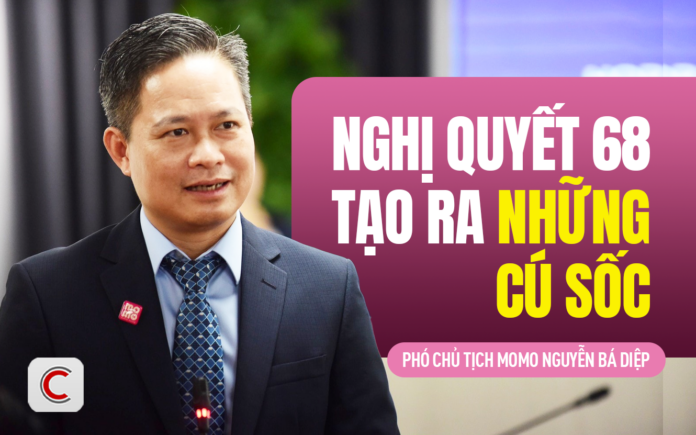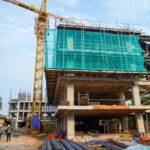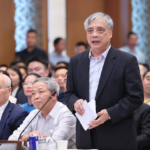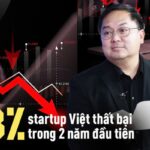At the seminar “Unblocking Institutional Bottlenecks and Unleashing Private Sector Resources,” Mr. Nguyen Ba Diep shared the perspective of private enterprises in the technology sector on Resolution 68, which aims to develop the private sector.
According to the Vice Chairman of MoMo, Resolution 68 gives a sense of being “heard” to the business community as it encompasses both macro and micro aspects.
“The resolution came as a shock to science and technology enterprises. For the first time, policy suggestions from businesses were clearly accepted, giving a sense of recognition and pride,” he said.
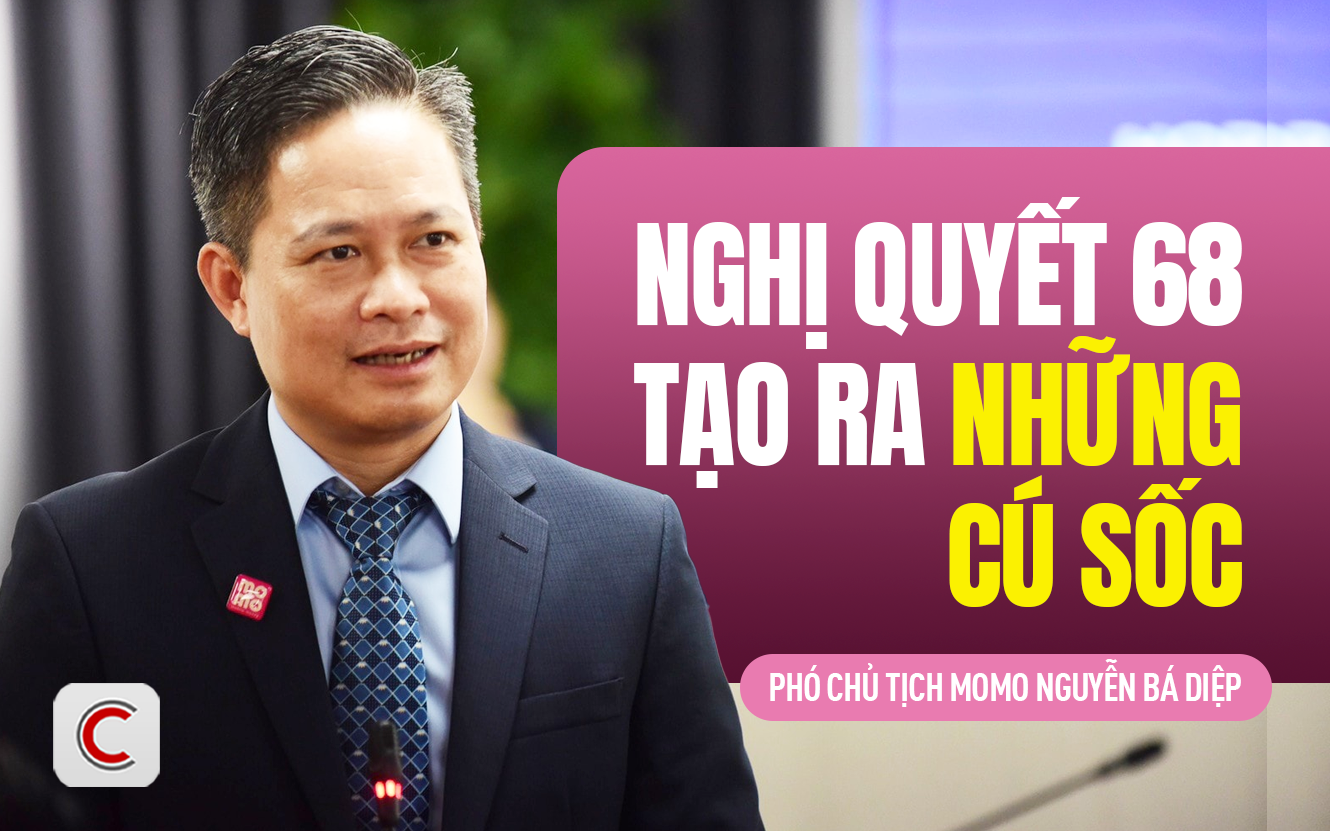
According to MoMo’s leader, two particularly practical aspects for technology and innovation enterprises are the elimination of business conditions, simplification of administrative procedures, and improved access to capital.
As evidence, he stated that many technology services currently lack a clear legal framework, causing enterprises to operate in a “legal vacuum.” For instance, MoMo is simultaneously managed by five ministries, each with distinct requirements and approaches.
“The resolution’s affirmation of ‘businesses can do what the law does not prohibit’ and the elimination of the ‘permission-granting’ mechanism are positive steps. This expands the space for innovative enterprises,” said Diep.
At the same time, Diep analyzed the resolution’s impact on reducing compliance procedure costs and improving capital access mechanisms.
Specifically, based on practical experience, the leader believes that the resources allocated for compliance procedures according to the specific regulations of the ministries are also a bottleneck for enterprises. For example, at MoMo, the company has to assign five full-time employees just to generate reports for managing agencies, costing approximately 100 million VND per month.
“Therefore, it is highly commendable that the resolution aims to reduce compliance costs”, he said. This allows enterprises to focus their resources on researching and developing high-quality products that bring more benefits to the community.
Additionally, another reality is pointed out: innovative enterprises often lack tangible assets to use as collateral and only possess intellectual property. According to Diep, the current policies are more open, allowing enterprises easier access to capital and reducing dependence on venture capital or foreign funds.
“If the new mechanism allows for additional channels to access capital through the stock market or similar means, it will facilitate enterprises’ development,” Diep said.
Not only praising Resolution 68 on private sector development, but Diep, from the perspective of a technology enterprise, also shared three proposals to promote the sustainable development of the private sector.
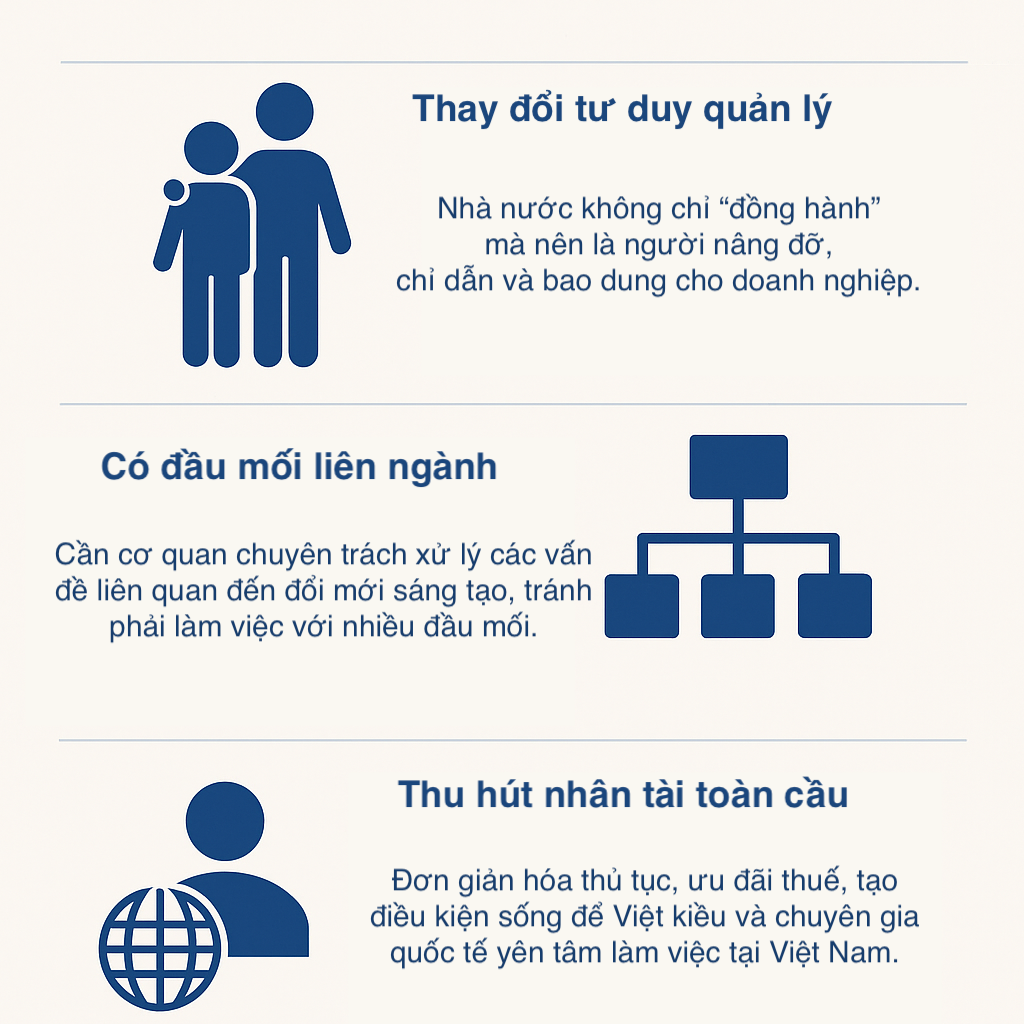
First is changing the approach between the State and businesses. “We often say that the State has an accompanying role. But I hope the approach should be: The State is the father, and the business is the child,” Diep illustrated. He explained that with the “father-child” role, the State has responsibility, support, tolerance for mistakes, and proper orientation. Such a relationship will promote stronger business development.
Secondly, there needs to be a focal point for resolving inter-sectoral issues. With a new product, enterprises often have to work simultaneously with multiple ministries. Diep proposed having a specialized agency in charge of issues related to innovation or the private sector, similar to the models in South Korea and other developed countries.
Finally, one of the critical factors for enterprise development, according to Mr. Nguyen Ba Diep, is policies to attract and retain high-quality human resources. He stated that most of the highly skilled human resources in Vietnam are Vietnamese who have worked abroad or foreign experts. However, administrative procedures, taxes, and living conditions for families are barriers that make many hesitate to return for long-term work.
“How can we create a mechanism to facilitate their easy entry, provide tax support, and offer a good enough living environment for their families so that they can feel secure about returning and contributing?” he asked.
Sharing the reality at MoMo, Diep said that the company currently not only invites overseas Vietnamese experts but also employs foreign personnel. However, when implementing the ESOP (Employee Stock Ownership Plan) for these employees, he pointed out some inconsistencies with practical situations.
“Even with an ESOP value of just 10 million VND, the system still considers it a foreign investment. The process is similar to that of a $200 million capital contribution, which can take up to a year to complete,” he said, emphasizing that this is not a complex issue if there were more flexible policies.
According to him, simplifying the process, along with tax incentives and support for employees’ living environments, will not only attract talent but also create long-term motivation for the development of the Vietnamese economy.
Streamlining Permit Procedures: The Prime Minister’s Directive to Fast-track Construction Projects with Detailed 1/500 Planning
“The Prime Minister has instructed the Minister of Construction to reduce administrative procedures, business conditions, compliance costs, and resolution times for administrative procedures under the management of the Ministry of Construction before the 25th of each month.”
Dr. Tran Dinh Thien: We Need More Private Sector Representatives and Scientists in the National Assembly
“Renowned economist Dr. Tran Dinh Thien proposes an increase in the number of private entrepreneurs and scientists among the National Assembly delegates. His vision involves a more inclusive law-making process, ensuring that a diverse range of expertise contributes to the country’s legislative framework.”
Mr. Hoang Nam Tien: 93% of Vietnamese Startups Fail in Their First Two Years; Hopes Resolution 68 Will Turn the Tide
“If vigorously enforced, Resolution 68 could be a pivotal turning point in significantly reducing the failure rate of Vietnamese startups in the coming years,” asserts Mr. Hoang Nam Tien. This statement underscores the potential impact of decisive action on fostering a thriving entrepreneurial landscape in Vietnam.
Unleashing the Power of Private Sector: Unblocking the Bottlenecks for a Dynamic Economy
Resolution 68 underscores the private sector as a vital driver of economic growth. However, the very system that enables its success is also its biggest hurdle. It’s time to break free from these institutional barriers and unleash the true potential of the private sector.

